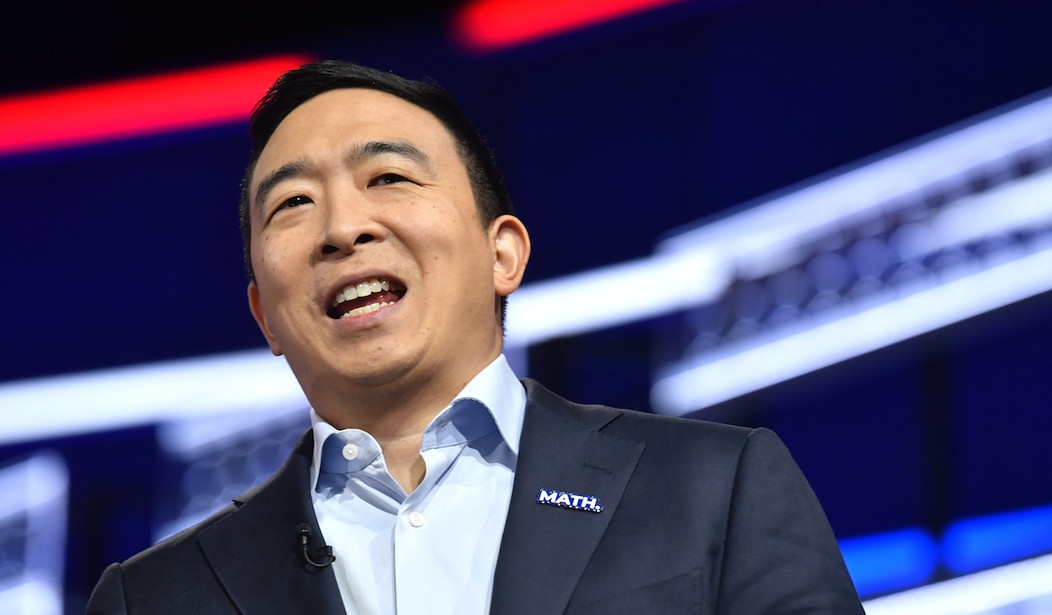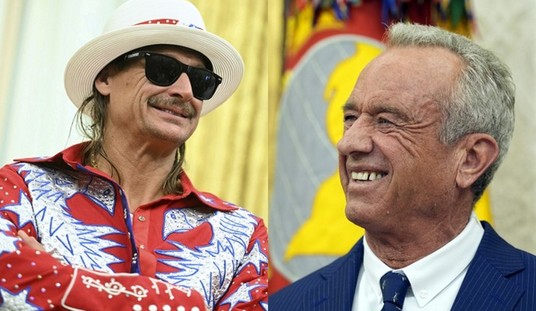Former Democrat presidential candidate, New York mayoral candidate, and technology entrepreneur Andrew Yang penned a stirring piece to his blog today. Titled, “Breaking Up With the Democrat Party“, Yang writes an emotional, but pointed post on why, after running as a Democrat presidential candidate, then New York mayoral candidate, the party no longer represents him.
Yang reveals how he aligned as a Democrat in college, because the party and its candidate at the time (Bill Clinton) appeared to resonate with who he was as a young person of 20. He admits he grew up in a religiously agnostic household, and really never knew what his parents believed in politically. Through his years of advocacy for the party, and then his candidacy within the the party, Yang met many friends and allies who he believes are there to do good things and seek change. However, Yang became slowly disenchanted with the party apparatus as a whole:
Again, I have at this point dozens of friends and confidantes who are entrenched in the Democratic Party. I’ve been a Democrat my entire adult life.
And yet, I’m confident that no longer being a Democrat is the right thing.
Please, keep in mind that I am NOT suggesting that you also change your voter registration to Independent, as I have done. Doing so could disenfranchise you if you live in the 83% of the country that is very blue or very red. For this reason, I considered either not making this change or not talking about it.
So why do I feel in my heart that this is the right move?
While it was simply a small piece of paperwork, I genuinely felt a shift in my mindset as soon as I signed it.
My goal is to do as much as I can to advance our society. There are phenomenal public servants doing great work every day – but our system is stuck. It is stuck in part because polarization is getting worse than ever. Many of the people I know are doing all of the good they can – but their impact is constrained. Now that I’m not a member of one party or another, I feel like I can be even more honest about both the system and the people in it.
The key reform that is necessary to help unlock our system is a combination of Open Primaries and Ranked Choice Voting, which will give voters more genuine choice and our system more dynamism. It will also prevent the spoiler effect that so many Democrats are concerned about, which is a byproduct of a two party system with a binary contest and simple plurality voting.
I believe I can reach people who are outside the system more effectively. I feel more . . . independent.
Yang addresses what trips up all political parties: Ideology over practicality. Neither party wants to address, or make changes that will impact their constituents bottom line. If this happened, it would mean less work for politicians, consultants, and so-called “problem solvers”. It would also impact the bottom line of donors, unions, and institutional contributions who rely on the candidates and parties to ensure their agenda is pushed through.
Unlike a majority of Democrat candidates who have never worked an actual job, or built anything in their lives, Yang has run successful businesses, raised a family, bought property, and seen how the ebb and flow of policy has affected him practically. Like most Millennials and some Gen Xers in his age category, he is seeing an ideologically-driven focus to the party, rather than a party driven by the concerns of its citizens.
You will always have the true believers, the foot soldiers, the “Vote (Red/Blue/Green) no matter who” in the ranks. However, the majority of citizens are focused on their basic needs, and how to foster a greater society for themselves and their children. Neither party is good at speaking to this. One party pretends to, the other fails miserably, and as Yang expounds, the level of theater that goes on merely produces confusion and obfuscation of the true message:
Also, on a personal level, I’ll admit there has always been something of an odd fit between me and the Democratic Party. I’m not very ideological. I’m practical. Making partisan arguments – particularly expressing what I often see as performative sentiment – is sometimes uncomfortable for me. I often think, “Okay, what can we actually do to solve the problem?” I’m pretty sure there are others who feel the same way I do.
I’ve seen politicians publicly eviscerate each other and then act collegial or friendly backstage a few minutes later. A lot of it is theatre.
I’ve also had people publicly attack me and then text or call me privately to make sure that we were still cool. It just had to be done for appearances.
Perhaps it’s the nature of my upbringing, but I’m actually more comfortable trying to fix the system than being a part of it.
Ahh, quite a revelation. Yang is a politician who actually wants to solve problems, and both political parties fundraise on alerting you to problems with the other party that they claim they can fix, if only you give this amount, vote for this candidate, ad infinitum.
Yang concludes the blog post with an encouragement, and a warning from a Democrat in national office:
One very senior Democrat member of Congress texted me to say, “I’m sorry to see you go. But I know you’ll do as much good as you can from the outside. And eventually, remember the outsiders become the insiders.”
Truth. The trick is, once on the inside, can an outsider maintain that perspective? We’ve seen how corrupted and corroded many candidates have become after years in public office. You go in thinking you can change the system, and then suddenly you are the system, and see no need for change.
Yang is optimistic this will not be the case. It is that “can do” optimism which made him a national force to begin with.
I’ve got to say it feels really good to be building my own team. This is where I’m most at home.
Recently, in an interview I commented that I wasn’t particularly driven by a desire to hold office. I’m working for impact.
We’ll see how much his impact will make a difference on the political landscape overall.














Join the conversation as a VIP Member